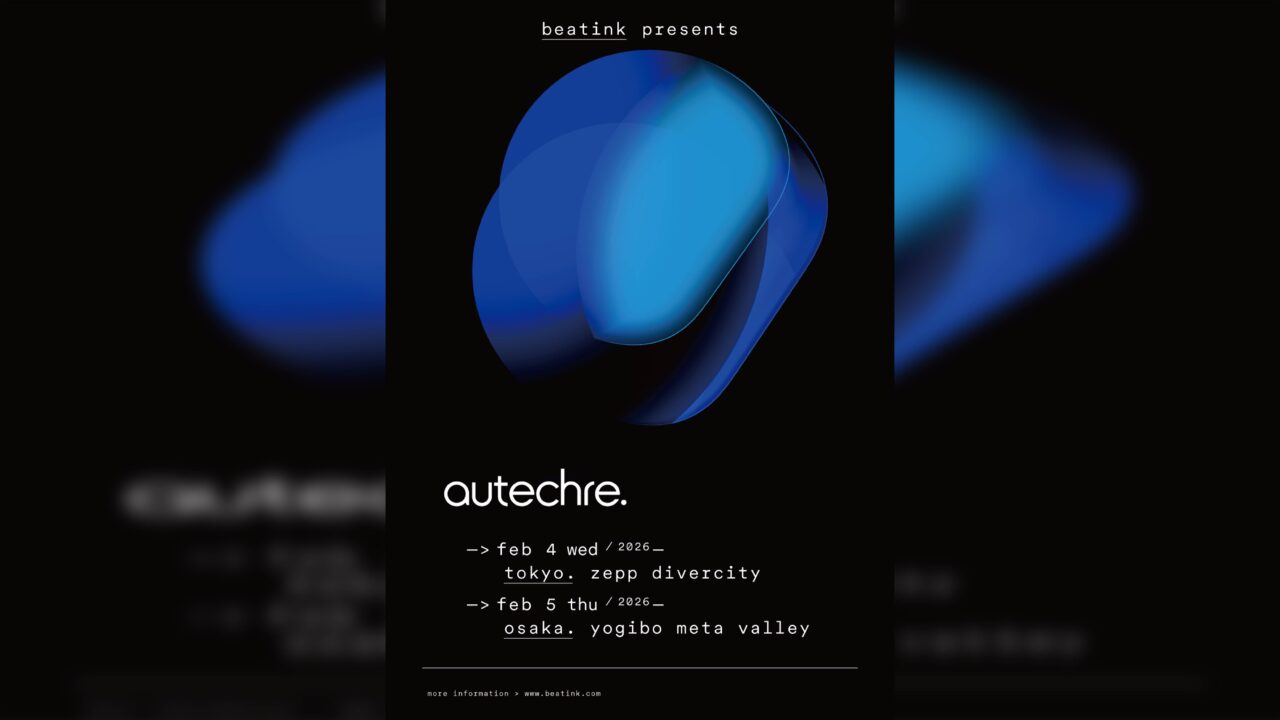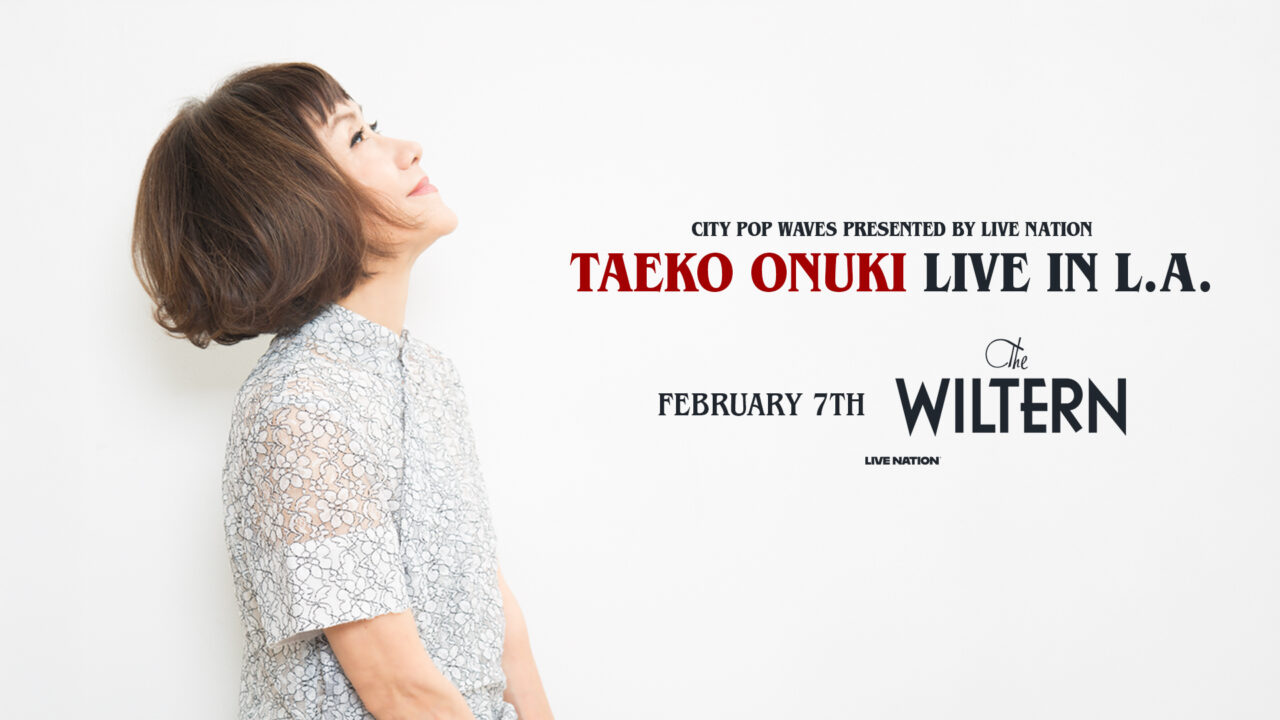Tamas Wells, originally from Australia, was raised in the household of a painter father, where his musical journey began with repeated listens of The Beatles’ “Sgt. Pepper’s Lonely Hearts Club Band” (1967). His upbringing, marked by a keen awareness of societal inequalities, led him to relocate to Asia. Despite the cultural shift, his music maintained an innocence reminiscent of Sigur Rós and delicate melodies akin to Sufjan Stevens.
Last year, Tamas released his long-awaited album “To Drink up the Sea,” navigating through the challenges of the pandemic and the loss of his father. This latest release showcases his evolved songwriting, enriched by a diverse range of instruments. As he gears up for his forthcoming tour in Japan, we explore his creative process and the inspirations driving his newest musical endeavor.
INDEX

Australian singer-songwriter based in Melbourne. His second album, “A Plea en Vendredi” (2006), garnered attention through word of mouth upon its release in Japan, with his captivating voice earning him the nickname “angelic voice.” His latest work is “To Drink up the Sea,” released in December 2023. From 2006 to early 2012, he spent six years in Myanmar, where he worked as a health worker and fieldworker for HIV/AIDS education at a local NGO. He is currently employed as a researcher specializing in Southeast Asian politics at the University of Melbourne. In 2021, he published his first book, “Narrating Democracy in Myanmar,” focusing on politics and democracy in Myanmar.
Exploring the Origins of the “Nick Drake meets Sigur Rós” Voice
-You were born and raised in a town near Melbourne. What kind of place was it?
Tamas: It is a very small town by the sea, about two hours drive from Melbourne. My father was a painter and painted landscapes, and he didn’t play music when he was working. So the town and my house were very quiet.
-How did you get into music?
Tamas: At first I took piano lessons at my parents’ suggestion, but I didn’t like it that much and didn’t put much effort into practicing. Then, when I was a teenager, I suddenly decided I wanted to play the piano. Later, when I went to university, many of the friends I made were active in the Melbourne music scene, and suddenly the world of music opened up before my eyes.
-Did you not listen to music before then?
Tamas: I spent most of my time with my family when I came home from school, so I never listened to records with friends or went to live shows. However, I did listen to the cassette tape of The Beatles’ “Sgt. Pepper’s Lonely Hearts Club Band” that my parents had over and over again. That’s about the only thing I listened to on my own.
-When listening to your songs, I feel the influence from the folk music of the 1960s, but it’s surprising to hear that he only listened to The Beatles.”
Tamas: Well, at my first concert, one of the audience members told me after the performance that I sounded like Simon & Garfunkel, but I had never heard their music. Since I started playing music, I keep discovering great 1960s artists.
For example, I discovered Lambert & Nuttycombe when I went to Japan about 15 years ago; they write the most beautiful melodies. I also enjoyed The Velvet Underground’s “Sunday Morning” last week.
-Why did you choose to play the acoustic guitar when all you listened to was The Beatles?
Tamas: Partly because I felt a kinship with these singer-songwriters when I saw them perform live, but also because of practical considerations. I lived in a college dormitory, so I couldn’t make a very loud sound, and I didn’t have much money, so the only instrument I could afford was an acoustic guitar. If I had been able to afford an electric guitar, I might have played different music.
-Acoustic guitars were probably better suited to your personality as well, weren’t they?
Tamas: Yes, I think so. I have been a shy person since I was a child, and I think it shows in my music. Some musicians like to get attention at live shows, but I’m not that type.

INDEX
Exploring the Roots of Beautiful Melodies: Interest in Human Inequality
-You are an introvert, but it is surprising that you lived in Myanmar, for six years (2006-2012) and interacted with local people while working for an NGO. What brought you there?
Tamas: I have often thought about the inequality of human beings since I was a child, but when I traveled to Southeast Asia several times and saw the extreme poverty, I began to think about how I could help.
When I stayed in Indonesia in particular, I was shocked to see so many people suffering and lacking opportunities in a country that is not that far from Australia. So I decided to study public health at university and wanted to pursue a career in humanitarian work. Then my wife and I applied for a volunteer position and decided to go to Myanmar.
-How was life there? Myanmar was under military rule at the time, and Aung San Suu Kyi, who was seeking democratization, was under house arrest for an extended period.
Tamas: When we first moved to Myanmar, we were constantly followed by military officials to check where we were going. But by the time I returned to Australia, they gradually opened up and became more hopeful about the future. It was a very intense experience, but wonderful days.
-After your returned to Australia, Myanmar is moving toward democracy. You witnessed a turbulent time of social change.
Tamas: It has been about 10 years since I returned to Australia, but I still go to Myanmar twice a year to do volunteer work. I have witnessed the suffering of the local people and have developed friendships with those who continue to fight to make their country a little better, so I feel it is important to support them even after I return home.

Tamas: In Australia, as in Japan, there are people who are suffering very much despite the apparent wealth of the country. On the other hand, those facing extreme poverty do not even have a chance.
Poverty in Myanmar has been taken to extreme levels of suffering by the military regime. But the people of Myanmar understand that economic wealth is not the only goal in life. While living in Myanmar, I empathized with their way of thinking.
-While living in Myanmar, you wrote songs and produced albums, but how was the creative process in a foreign country?
Tamas: I guess you could say it was an escape from the pressures and worries of the real world. Music has its own little world, and while you are in it, you can forget about the outside world.
But every time I tried to immerse myself in the world of music and grab hold of what was important to me, I would end up somewhere else. It’s like running away. Even now that I am back in Melbourne, music is my temporary escape from the seriousness of life.

INDEX
Tamas Created Portraits of his Friends in Myanmar, Published a Book based on his University Research, and Subsequently Unveiled his Sixth Album
-In 2023, your new album “To Drink up the Sea” was released, your first new album in 6 years. Was the pandemic a major factor in the time gap since your last album?
Tamas: The main reason was the pandemic. We had written songs before the pandemic, but Melbourne was on lockdown for an extended period of time, so we were unable to record. So I wrote a book* and started working as a painter and painted a series of portraits.
-What do you mean by a series of portraits?
Tamas: In 2021, there was a coup in Myanmar and the country went back to military rule. I went to Myanmar and supported the activists. As part of that support, I painted portraits of my friends in Myanmar and sold them to fund my humanitarian work.
*Editor’s note: Narrating Democracy in Myanmar, published in 2021. The book is about politics and democracy in Myanmar.
-You have been looking for opportunities to record while writing books, painting, and doing other activities outside of music. What was your goal in hiring Greg J. Walker of Machine Translations to produce the new album?
Tamas: I asked Greg because I wanted someone I could trust to be involved in the production. I have always loved Machine Translations’ work, and Greg is a genius in the way he builds music. I left the sound production of the new album to Greg, because I’ve always been a fan of his work.
But I’ve always been a fan of his work, so I was afraid to contact him. I was afraid he wouldn’t take up an offer from an unknown artist. Fortunately, he agreed to produce. When I first visited his house, Greg asked me to play a song for him, but my hands shook playing the piano (laughs).
-Greg didn’t only produce the album, but also played various instruments and provide support in terms of performance.
Tamas: I had Greg participate in the early stages of the album. The songs were all written in advance, and we wanted to be open to all of Greg’s ideas if he suggested anything during the recording process. He came up with a lot of ideas, especially in terms of instrumental layering.
-The single “It Shakes the Leaving Daylights From You” is one of the results of collaboration with Greg. Various instruments are layered, and the arrangement is intricate.
Tamas: I wrote this song during the pandemic. I had been experimenting with using seventh chords to create music with a 1960s feel, and it was perfect for this song.
I thought it would be good to make it sound like a band, so I talked to Greg about it, and he layered various instruments on top of each other. For example, the bridge. At first it was just a simple piano, but Greg layered on layers of guitars and even added a sitar-like instrument.
INDEX
Influences from Father: Enriching the “Angelic Voice“
– “It’s Not the Same” is a song about your late father. I think you have never written a song that expresses your feelings so frankly.
Tamas: Yes, I think so. I think it has something to do with the fact that I am a shy person. It has been difficult for me to write songs about personal things. I have always wanted to write more direct and open lyrics, and this song is the one that finally took shape.
-The description of the birds waiting for you conveys your father’s kindness and personality.
Tamas: When my father was very old, he used to feed the birds every time he went for a walk at the lake near our house. After my father passed away, when my mother went for a walk at the lake to feed the birds, the birds seemed confused and waiting for my father to come because he was not my father. Seeing that made me sad, so I wrote lyrics about that.
-You used a picture of your father on the cover of your second album “A Plea En Vendredi” (2006). As an artist, what influences did your father have on you?
Tamas: I absorbed many things from my father. For example, his sensitive approach to expressing things. My father does not force anything, but communicates in a quiet way. The painting I used for “A Plea En Vendredi” is of a local seaside scene that my father often used as a subject, and I thought that his restrained touch suited the lo-fi, simple songs on the album.
-I feel that your father paints various landscapes and you paint your own mental landscapes through your music.
Tamas: That is a very interesting observation. A child is something that wants to do something different from his father. So I wanted to do something different from being a painter. But now that I think about it, maybe I am doing the same thing as my father. Maybe I have been trying to express my inner landscape through music.
-The paintings in “A Plea En Vendredi” seemed to depict your music. Your father had a wonderful sense of color, but part of the charm of your songs is the melody. What do you value in songwriting?
Tamas: Melody, of course. I am especially attracted to the melodies of music from the 1960s. I am always thinking about melodies, and I love to find new melodies. Every day I pick up my guitar and think about melodies for five minutes. Then, when I think of something, I record it on my cell phone. I have hundreds of melody ideas in my phone.
-You also experiment with various arrangements of harmonies and choruses.
Tamas: I love choruses and harmonies. You could even say I’m addicted to them (laughs). Choruses and harmonies can really bring a song to life, and singing along with the other members in a live setting is a wonderful experience.
-And the most wonderful thing about your singing is your voice. In some ways it reminds me of your father’s touch in painting: delicate and not intrusive. What do you keep in mind when you sing?
Tamas: When I started my musical career, I was performing with friends and didn’t really hear my own voice, but when I started singing alone into the microphone, I understood everything that was happening to my voice. From then on, I became more conscious of every detail of my voice.
INDEX
Equality in the Rain of Music and Art
-In the song “To My Love,” there is a line that says, “To naively that sings. I feel that “naively that sings” is something that I feel from your vocals.
Tamas: This song is about a friend who lost her partner to cancer a few years ago, and I wanted to write lyrics about love. My friend and her partner went through a difficult time in their love. <To naively that sings is a passage where the two of them are reflecting on a time when they were “innocently (naively)” in love with each other. I don’t consciously try to sing naively myself, but I guess it’s something that shows up unconsciously.
-What can you tell us about the album title “To Drink up the Sea”?
Tamas: I happened to be reading a book by Nietzsche around the time the album was completed. It was about people of faith and their concerns about modern society. I used a striking passage I found in the book as the title of the album.
I am not a Nietzsche scholar, so I doubt I am interpreting it correctly, but I think the passage is about faith. If we humans are sailing on a ship, the sea on which the ship floats is faith and tradition, and if we drink those things up, we will not be able to sail. I interpret it to mean that to not believe in God is to be so reckless as to drink up the waters of the sea.
-I was thinking of the metaphor of the ocean, and your music is like a glass of water. Just as a glass of water soothes a weary body, your songs soothe the anxieties and loneliness for a short time.
Tamas: Thank you. It’s the first time I’ve heard you say that. I believe that music and art can have a positive impact on human beings, no matter how rich or poor they are.
-Since you were a child, you have been concerned about the inequality in society. Is the fact that music can give people something on an equal footing also a reason for you to continue your music career?
Tamas: I think there are many phases in life. A large part of my life is working in universities and non-profit organizations, where I have to deal with serious issues. I also need to learn more and more. Music is a different place from those practical issues. I create something there. It is important for me to feel freedom when I am making music.
-So music is an essential part of your daily life?
Tamas: Every day, holding my guitar and creating new songs is like rehydrating for me. Music is a glass of water for me, too. Thanks to music, I am able to face the harsh reality of my work. So music is a very personal thing, but I am happy if it has a positive impact on people as a result.
Tamas Wells performing “A Plea en Vendredi”

Saturday, April 20, 2024
Venue: Daikanyama, Tokyo
Guest: Saho Terao
https://tamaswells2024-day1.peatix.com
Sunday, April 21, 2024
Venue: Shibuya 7th FLOOR, Tokyo
Opening act: Kim Beals
Tamas Wells China 2024

4.23 Beijing MAO Livehouse: https://showstart.com/event/221016
4.24 Shanghai MAO Livehouse: https://showstart.com/event/221009
4.25 Hangzhou MAO Livehouse: https://showstart.com/event/221933
4.26 Guangzhou SD Livehouse: https://showstart.com/event/221008
4.27 Shenzhen HOU LIVE: https://showstart.com/event/221630
Tamas Wells To Drink up the Sea Domestic Version(CD)

Release date: Friday, December 8, 2023
Price: 2,400 yen (excluding tax)
LIIP-1555
1. It Shakes the Living Daylights from You
2. Arguments That Go Around
3. Every Other Day
4. It’s Not the Same
5. Tooth and Nail
6. August I Think Nothing Much at All
7. A Little Wonder
8. Shells Like Razor Blades
9. The Tattoos on Anna’s Feet
10. To My Love
























